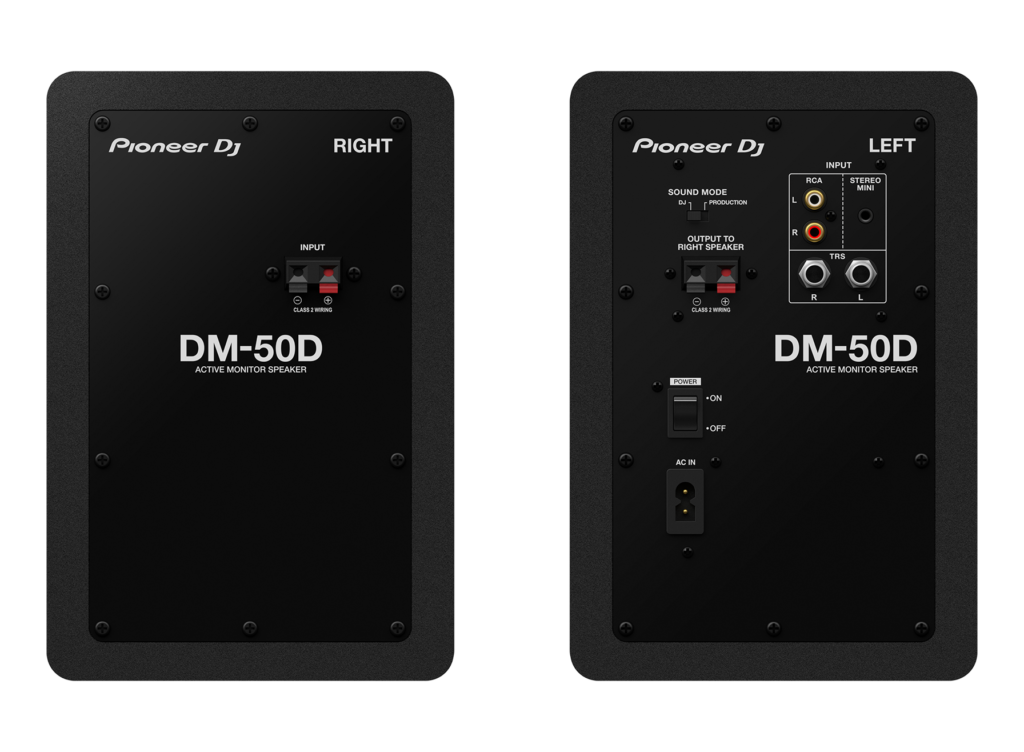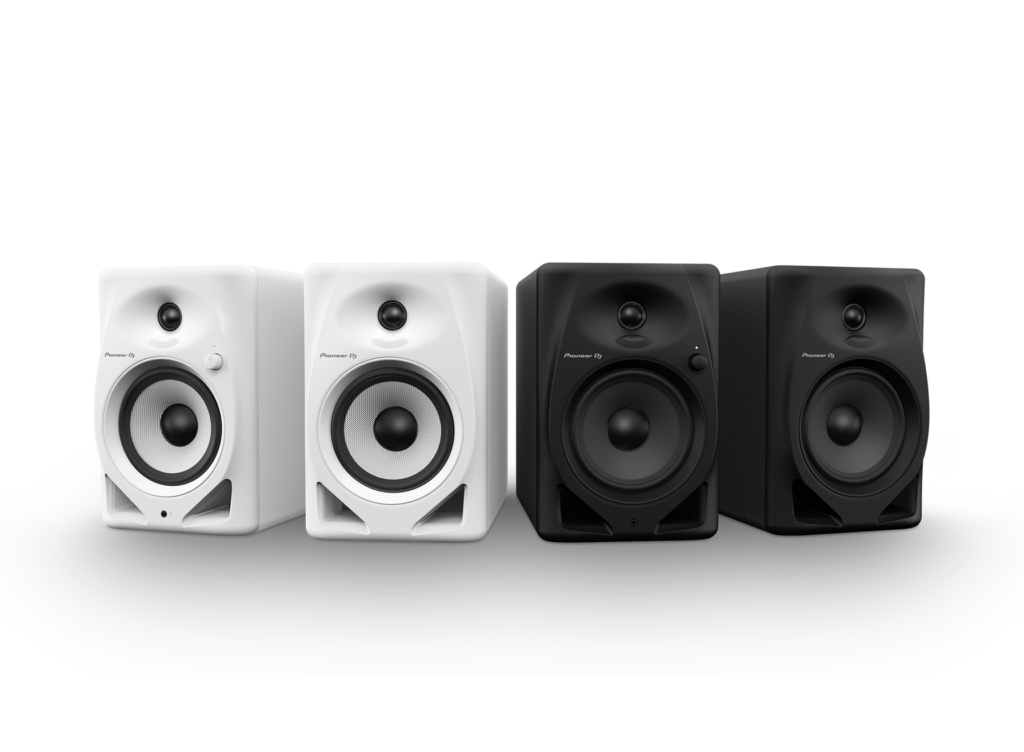Pioneer’s latest speakers are designed to meet the needs of DJs as well as aspiring producers and beatmakers. Greg Scarth finds out how they try to offer the best of both worlds.

The Pioneer DJ brand is probably best known to most thanks to the industry standard CDJ players, DJ controllers and DJM mixers. Dig a little deeper, and you’ll find that there’s a lot more on offer, including headphones, turntables, production tools and a small-but-carefully-considered range of speakers designed for DJ and studio use. The Pioneer DJ DM-50Ds are the latest addition to that line-up, a compact and affordable pair of speakers designed for both DJ and production use.
The DM-50Ds – which are also available in white – slot into the brand’s DM range above the existing DM-40s and the Bluetooth-equipped DM-40BTs. All three models are supplied as pairs, meaning you get everything you need in one box, ready to plug into a suitable mixer, controller, computer/mobile device or audio interface, depending on what you’re looking to achieve. The unique selling point of the DM-50D is that they feature what Pioneer call a two-way sound mode, allowing you to switch between settings for DJing and production use; the speakers include digital sound processing hardware which alters the frequency response and overall sound accordingly.

The power supply and amplifier circuits for the DM-50Ds are included in the left-hand speaker, so this is where the on/off switch, volume control and headphone output are all located. Setting up the DM-50Ds is a simple case of connecting that speaker to a power socket and your audio source, then connecting up the right-hand speaker using the included cable. All easy and straightforward even if you’re a newcomer to DJing or production.

On that point, you may reasonably ask yourself why DJs and producers need slightly different types of sound from their speakers. It might seem like the ideal sound for both would be similar, especially if you plan to mix and produce similar types of music, but consider for a moment the difference in sound between a club system and a pro studio. A club system should be loud, punchy, engaging and vibey; perfect accuracy isn’t necessarily the point. On the other hand, pro studio monitors don’t necessarily sound fun to listen to, but they’re analytical, precise and revealing when making music.

This is where the DM-50Ds offer up their party trick. A lot of studio monitors include equalisation controls, allowing you to adjust the bass and treble to suit the sound in your room, but that doesn’t exactly mean they’re intended to be used for different purposes. Instead, the DM-50Ds allow you to switch between two separate modes, one for DJing and one for production. The difference in sound isn’t night and day, but there’s a bit more extended bass oomph in DJ mode and a flatter, more precise sound in production mode. They do both jobs well, offering enough volume to suit home DJ practice and house parties, while being accurate enough to allow you to make music and haer what you’re doing when using production software or hardware.

The DM-50Ds aren’t an expensive, high-end pair of speakers. They’re designed for relative newcomers to DJing, beatmaking and production who want to be able to use them for a lot of different tasks. When you look at it in those terms, they hit the mark: they’ve got decent bass response for a small speaker, they’re easy to set up and the two separate modes allow you to choose whichever you think sounds most appropriate for the kind of music you’re playing through them. The DM-50Ds feel like a more serious version of the Reloop DSM-3 BT speakers we reviewed recently. At £199 a pair, the DM-50Ds are a bit more expensive, but you do get a bigger and more capable set of monitors for your money. For beginner DJs and anyone dipping their toe into the world of making music, the DM-50Ds are an excellent choice.
Greg Scarth
More info/buy